Intergovernmental Authority on Development
The Intergovernmental Authority on Development (IGAD) is an eight-country trade bloc in Africa. It includes governments from the Horn of Africa, Nile Valley and the African Great Lakes. Its headquarters are in Djibouti City.
Intergovernmental Authority on Development (IGAD) الهيئة الحكومية للتنمية Autorité intergouvernementale pour le développement | |
|---|---|
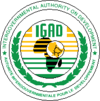 Seal
| |
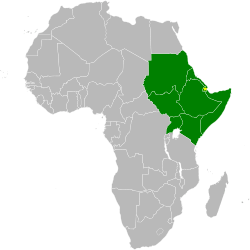 | |
| Headquarters | |
| Official languages | English |
| Membership |
|
| Leaders | |
• Executive Secretary | |
| Establishment | January 1986 (As IGADD) 1996 |
| Area | |
• Total | 5,204,977 km2 (2,009,653 sq mi) |
| GDP (PPP) | estimate |
• Total | $337.82 billion |
| GDP (nominal) | estimate |
• Total | $197.202 billion |
• Per capita | $888.5 |
| Time zone | UTC+3 (East Africa Time) |
Website www | |
Member states
- Horn of Africa
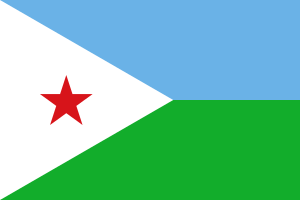
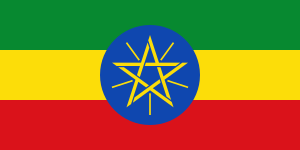
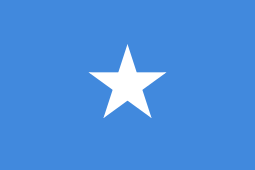
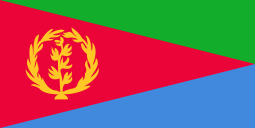
- Nile Valley
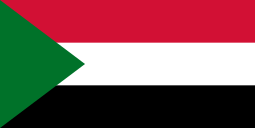
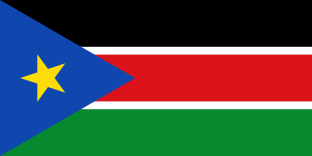
- African Great Lakes
Formation
The Intergovernmental Authority on Development was established in 1996. It succeeded the earlier Intergovernmental Authority on Drought and Development (IGADD), a multinational body founded in 1986 by Djibouti, Ethiopia, Somalia, Sudan, Uganda and Kenya, with a focus on development and environmental control. IGADD's headquarters were later moved to Djibouti, following an agreement signed in January 1986 by the member states. Eritrea joined the organization in 1993, upon achieving independence.[3]
In April 1995, the Assembly of Heads of State and Government met in Addis Ababa, where they agreed to strengthen cooperation through the organization. This was followed with the signing of a Letter of Instrument to Amend the IGADD Charter / Agreement on 21 March 1996. The Revitalised IGAD, a new organizational structure, was eventually launched on 25 November 1996 in Djibouti.[3]
IGASOM/AMISOM
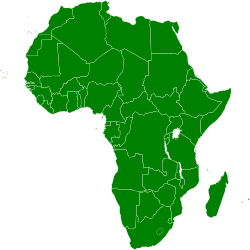 |
|---|
| This article is part of a series on the politics and government of the African Union |
|
Executive
|
|
Legislature
|
|
Advisory bodies
|
|
Financial bodies |
|
Decentralised bodies
|
|
Related topics |
In September 2006, the AU Peace and Security Council approved an IGAD proposal to deploy an IGAD Peace Support Mission in Somalia (IGASOM).[4]
On 21 February 2007, the United Nations Security Council approved Resolution 1744, which authorized the deployment of a new African Union Mission to Somalia (AMISOM) in place of IGASOM.[5]
Current situation
- IGAD is a principal supporter of the Federal Government of Somalia through the AMISOM initiative.
- IGAD expanded its activities in 2008 with initiatives to improve the investment, trade and banking environments of member states. The organization stressed the deployment of highly innovative programmes and mechanisms.
Structure
- The Assembly of Heads of State and Government is the supreme policy making organ of the Authority. It determines the objectives, guidelines and programs for IGAD and meets once a year. A Chairman is elected from among the member states in rotation.
- The Secretariat is headed by an Executive Secretary appointed by the Assembly of Heads of State and Government for a term of four years renewable once. The Secretariat assists member states in formulating regional projects in the priority areas, facilitates the coordination and harmonization of development policies, mobilizes resources to implement regional projects and programs approved by the Council and reinforces national infrastructures necessary for implementing regional projects and policies. The current Executive Secretary is Workneh Gebeyehu of Etiophia (since 29 November 2019).[6]
- The Council of Ministers is composed of the Ministers of Foreign Affairs and one other Minister designated by each member state. The Council formulates policy, approves the work program and annual budget of the Secretariat during its biannual sessions.
- The Committee of Ambassadors comprises IGAD member states' Ambassadors or Plenipotentiaries accredited to the country of IGAD Headquarters. It convenes as often as the need arises to advise and guide the Executive Secretary.
Ambassador Mahboub Maalim handed over as Executive Secretary [7] to Workneh Gebeyehu in late 2019. Maalim, a Kenyan nominee, had served from 2008-2019.
Comparison with other regional trade blocs
| African Economic Community | |||||
|---|---|---|---|---|---|
| Pillars regional blocs (REC)1 |
Area (km²) | Population | GDP (PPP) ($US) | Member states | |
| in millions | per capita | ||||
| AEC | 29,910,442 | 853,520,010 | 2,053,706 | 2,406 | 54 |
| ECOWAS | 5,112,903 | 349,154,000 | 1,322,452 | 3,888 | 15 |
| ECCAS | 6,667,421 | 121,245,958 | 175,928 | 1,451 | 11 |
| SADC | 9,882,959 | 233,944,179 | 737,335 | 3,152 | 15 |
| EAC | 2,440,409 | 169,519,847 | 411,813 | 2,429 | 6 |
| COMESA | 12,873,957 | 406,102,471 | 735,599 | 1,811 | 20 |
| IGAD | 5,233,604 | 187,969,775 | 225,049 | 1,197 | 7 |
| Other African blocs |
Area (km²) | Population | GDP (PPP) ($US) | Member states | |
| in millions | per capita | ||||
| CEMAC 2 | 3,020,142 | 34,970,529 | 85,136 | 2,435 | 6 |
| SACU | 2,693,418 | 51,055,878 | 541,433 | 10,605 | 5 |
| UEMOA 1 | 3,505,375 | 80,865,222 | 101,640 | 1,257 | 8 |
| UMA 2 | 5,782,140 | 84,185,073 | 491,276 | 5,836 | 5 |
| GAFTA 3 | 5,876,960 | 166,259,603 | 635,450 | 3,822 | 5 |
| 1 Economic bloc inside a pillar REC 2 Proposed for pillar REC, but objecting participation smallest value among the blocs compared
largest value among the blocs compared
During 2004. Source: CIA World Factbook 2005, IMF WEO Database | |||||
See also
Notes
- "Intergovernmental Authority on Development: About us: History". IGAD. 9 January 2010. Retrieved 29 December 2014.
- "East African bloc admits South Sudan as member". Reuters Africa. 25 November 2011. Retrieved 25 October 2012.
- "IGAD - About us". Intergovernmental Authority on Development. Retrieved 25 August 2013.
- "SOMALIA: African Union endorses regional peace plan". IRIN. 14 September 2006. Retrieved 25 August 2013.
- "Resolution 1744 (2007)" (PDF). United Nations Security Council. Retrieved 25 August 2013.
- "IGAD countries leaders applaud Dr Workneh's appointment as executive secretary". igad.int. Retrieved 2019-12-01.
- "Executive Secretary Hails Italy's Support to IGAD". Intergovernmental Authority on Development. Retrieved 24 June 2014.
External links
- IGAD official site
- Agreement Establishing the Intergovernmental Authority on Development
- IGAD Profile (Institute for Security Studies)
- Conflict Early Warning and Response Mechanism (CEWARN)